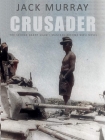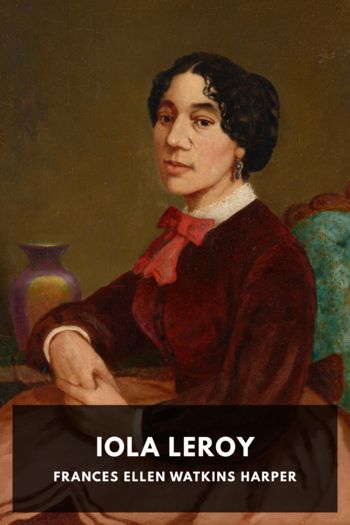Crusader (A Novel of WWII Tank Warfare), Jack Murray [top romance novels .txt] 📗

- Author: Jack Murray
Book online «Crusader (A Novel of WWII Tank Warfare), Jack Murray [top romance novels .txt] 📗». Author Jack Murray
Manfred understood the importance of gaining victory in thedesert. It would open the road to the badly needed oil reserves in the MiddleEast. Every soldier in the Afrika Korps realised that without oil the warengine would slowly grind to a halt. All the more reason for their exasperationwith Hitler’s decision to invade Russia the previous month. At a stroke he haddepleted their forces and armour. It showed clearly where Hitler’s priorities lay,and it was certainly not North Africa. None of the men in the crew appeared tohave much time for the Fuhrer, although open mockery was frowned upon byOverath, fearful of repercussions from others in the camp, particularly from LieutenantBasler.
Another day passed patrolling the perimeter of the camp.
At dusk they climbed out of the tank, weary and hungry, knowingthey still had a couple of hours to check the tank, ensure itstravel-worthiness for the next day when they would repeat what they had donethe previous day.
When at last they had completed the required checks, Manfred wentto cook for them. Kastner, meanwhile, reached for the wireless set and turnedit on. After twiddling the with frequencies for a minute Kohler came acrossMarlene Dietrich singing, ‘Lili Marlene’. In English. Grins erupted around thewireless.
‘Not that again. Has anyone got a gun?’ asked Manfred.
Overath and Kastner roared with laughter then turned up the volumeof the wireless and began to sing along in German. Even Fischer smiled.
And so, ended a day that would repeat itself for three long,stultifying months in the desert as the Allied and the Axis forces seemed toagree, in an odd breakthrough for humanity, that it was simply just too hot tofight.
-
‘Do you remember that cup final?’ asked Gerhardt.
‘You were lucky,’ replied Manfred sourly.
Oddly, Gerhardt didn’t disagree on this. Despite his ultra-competitivenature he was, at least, honest about things that mattered. And footballmattered. Even in the kickabouts here, both Manfred and Gerhardt stood outalthough the standard was quite high.
‘Do you know that after that match,’ continued Gerhardt, ‘A mancame over to me. He said he was from Schalke.’
‘Schalke? Bloody hell.’
‘I know. He said there was a war coming but I could get out of itif I joined them.’
Manfred looked at Gerhardt in surprise. There was a trace ofjealousy, too. They’d both played in this match. Why hadn’t Schalke invited himto play for them? Probably because Gerhardt was a better player. He hated toadmit this, but it was true.
‘What did you say?’
‘Where do I sign?’
The two boys collapsed laughing in the cold night air. When they’dfinished Manfred asked the next, obvious question.
‘But, my friend, I can’t help but notice you’re here. Whathappened?’
Gerhardt looked a little crestfallen at this point.
‘I saw my friends signing up. It was too much for me. So I wroteto Herr Himmler, not you know who, and told him that I would join the army. Hewas very good. I got a letter from him a week later which asked me to contacthim when I got back from the War. He also wanted to know the name of thatblonde-haired clodhopper on the other side.’
‘Bastard,’ said Manfred laughing and throwing some punches towardshis friends arm. Gerhardt was guffawing too much to care.
They separated and went to their tanks. Manfred sat down andextracted a letter from a bag. It was from his father. The letter was twomonths old. He started to read it again. It made him feel happy to see hisfather’s voice on paper. His father wrote good letters. Long, gossipy andsurprisingly frivolous as if he understood the soldiers need to read something,anything, when so far from home. There was little about his mother. That toldits own story. The country’s confidence that they could win the War seemed tobe on the wane. Like the last one, the suspicion was growing this would be along, drawn-out affair.
Kohler sat down beside him.
‘Good news?’
Manfred laughed but there was a trace of bitterness there too.
‘My father says everything and very little at the same time. TheFuhrer tells us we’re winning the war.’
‘So we must be, then.’
5
Little Gloston, England, August 1941
Stan Shaw’s arm ached like hell. From his elbow to his shoulder,he felt a stabbing pain from every strike of hammer on metal. Trails of sweatsneaked down his smoke-blackened face. What was he to do? He kept hammeringaway oblivious to the pain, oblivious to the heat of the forge, oblivious tothe slow erosion of a way of life he had never questioned. The forge echoed tothe sound of his hammer. He looked up, half expecting to see his boys. To seeyoung Ben Desmond. Perhaps even Lord Robert.
Mopping his brow, he set his hammer down and went to the waterpump. The cold hit him like a blast after the heat of the forge. He lookedoverhead and wondered where summer was hiding. For a few minutes he pumpedwater into the sink and then drenched himself. The freezing water restored lifeto muscles that were groaning from the relentless pounding of his trade.Satisfied that he was clean, he made his way towards the cottage located besidethe forge.
The pathway was but a few yards, but it moved him from asmoky-grey atmosphere into a world of delicate pastel-hued flowers and birdschattering in trees. Hard to believe they were at war. Hard to believe the boyswho used to play, wrestle and work around him were gone. The thought made himcatch his breath. The War to end all wars; the War he’d fought; the War inwhich he’d seen lifelong friends killed had only been a prelude to somethingpotentially much worse.
The front door led directly into the kitchen. This was to entermore than a room; it was an escape from the worry that hung heavy in the airaround him. The warmth of the kitchen was both physical and emotional for Stan.Beside the Aga cooker he’d lovingly restored years previously was his wife, Kate.There had been no other women in his life.





Comments (0)